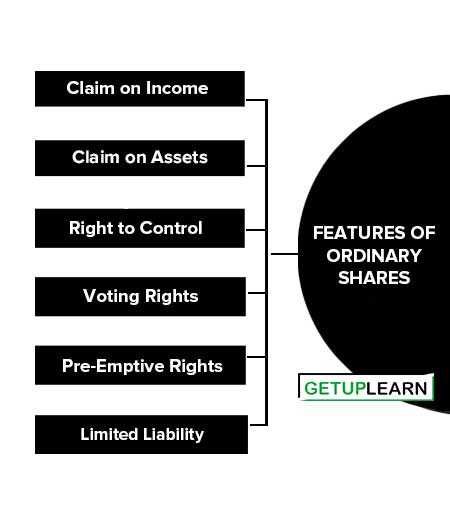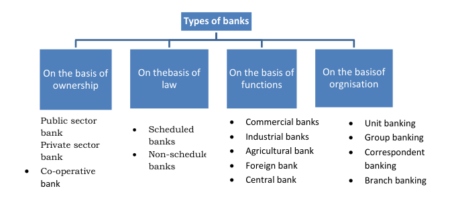Table of Contents
Ordinary shares, also known as common shares or common stock, represent ownership in a corporation. When you own ordinary shares of a company, you become a shareholder and have certain rights, such as voting at shareholder meetings and receiving dividends.
Ordinary share has a number of special features which distinguish it from other securities. The main features of ordinary shares are explained below:

Claim on Income
Ordinary shareholders have a residual ownership claim. They have a claim to the residual income, which is, earnings available for ordinary shareholders, after paying expenses, interest charges, taxes, and preference dividends, if any.
This income may be split into two parts: dividends and retained earnings. Dividends are immediate cash flows to shareholders.
Retained earnings are reinvested in the business, and shareholders stand to benefit in the future in the form of the firm’s enhanced value and earnings power and ultimately enhanced dividend and capital gain. Thus, residual income is either directly distributed to shareholders in the form of dividends or indirectly in the form of capital gains on the ordinary shares held by them.
Claim on Assets
Ordinary shareholders also have a residual claim on the company’s assets in the case of liquidation. Liquidation can occur on account of business failure or the sale of the business.
Out of the realized value of assets, first, the claims of debt-holders and then preference shareholders are satisfied, and the remaining balance, if any, is paid to ordinary shareholders. In case of liquidation, the claims of ordinary shareholders may generally remain unpaid.
Right to Control
Control in the context of a company means the power to determine its policies. The board of directors approves the company’s major policies and decisions while managers appointed by the board carry out the day-to-day operations. Thus, control may be defined as the power to appoint directors.
Voting Rights
Ordinary shareholders are required to vote on a number of important matters. The most significant proposals include the election of directors and change in the memorandum of association. For example, if the company wants to change its authorized share capital or objectives of the business, it requires ordinary shareholders’ approval.
Directors are elected at the annual general meeting (AGM) by the majority votes. Each ordinary share carries one vote. Thus, an ordinary shareholder has votes equal to the number of shares held by him.
Shareholders may vote in person or by proxy. A proxy gives a designated person the right to vote on behalf of a shareholder at the company’s annual general meeting. When management takeovers are threatened, proxy fights battles between rival groups for proxy votes occur.
Pre-Emptive Rights
The pre-emptive right entitles a shareholder to maintain his proportionate share of ownership in the company. The law grants shareholders the right to purchase new shares in the same proportion as their current ownership.
Thus, if a shareholder owns 1 percent of the company’s ordinary shares, he has a pre-emptive right to buy 1 percent of new shares issued. A shareholder may decline to exercise this right.
Limited Liability
Ordinary shareholders are the true owners of the company, but their liability is limited to the amount of their investment in shares. If a shareholder has already fully paid the issue price of shares purchased, he has nothing more to contribute in the event of financial distress or liquidation.
These are the features of ordinary shares:
1. Claim on Income
2. Claim on Assets
3. Right to Control
4. Voting Rights
5. Pre-Emptive Rights
6. Limited Liability.



